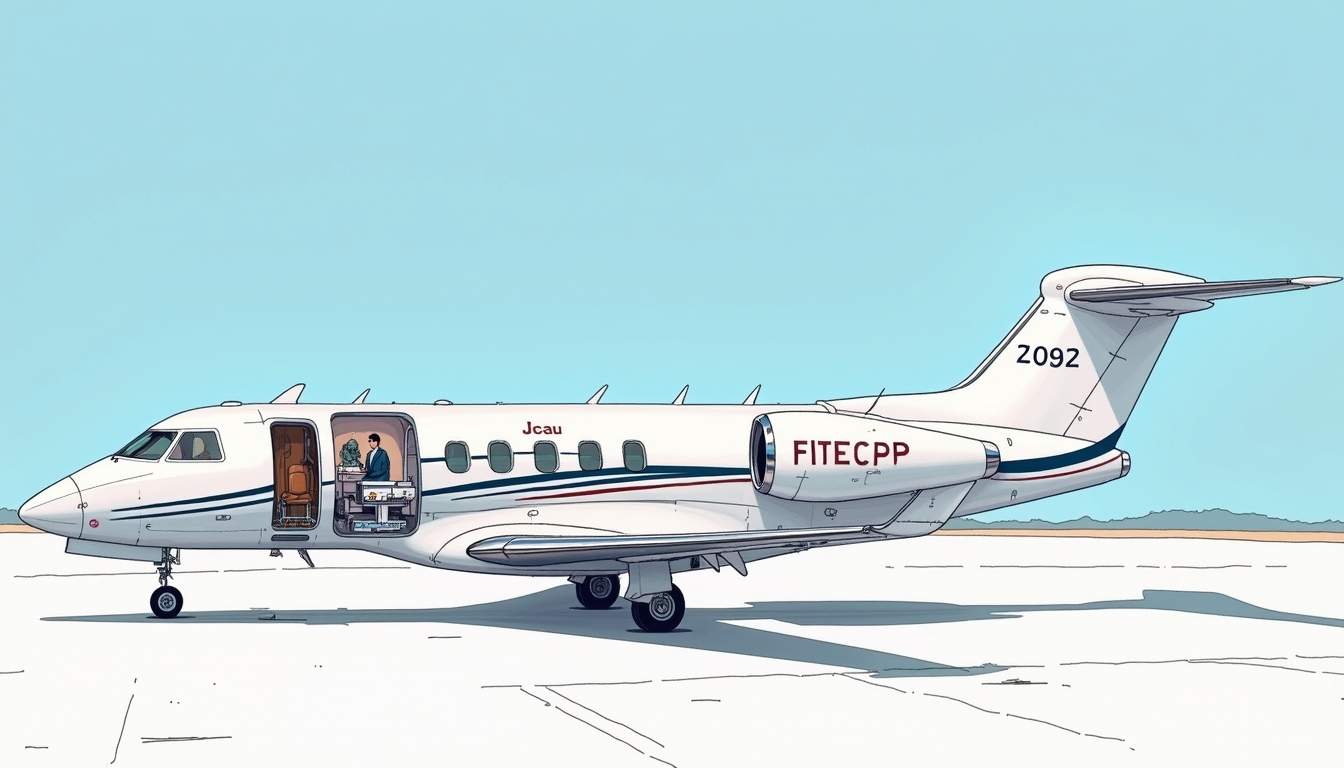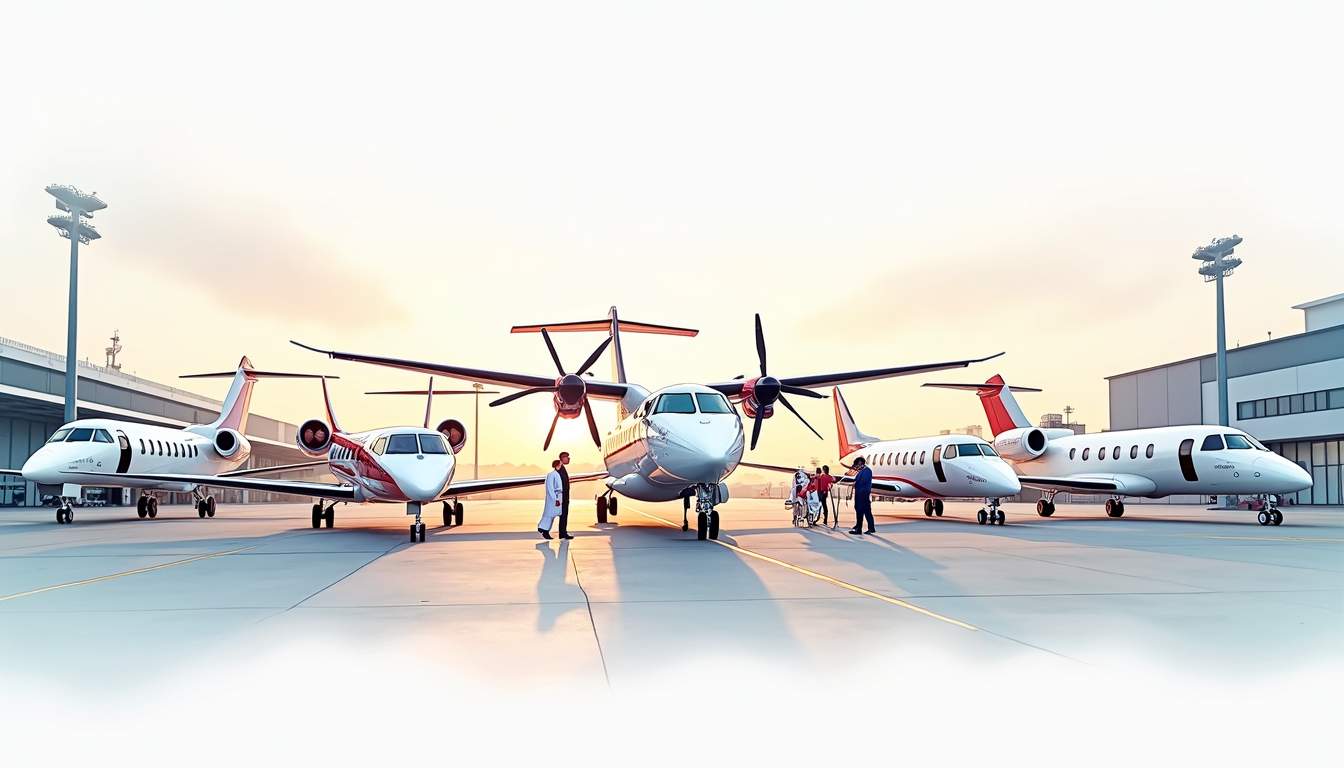In the realm of modern medicine, efficiency can often mean the difference between life and death. The transportation of organs for transplantation is a critical component of this efficiency, and traditional methods have faced numerous challenges. However, organ charter flights are emerging as a revolutionary solution, transforming how medical professionals approach organ transport. This article explores the significance of organ charter flights, the benefits they offer, and the future of medical transport.
The Importance of Timely Organ Transport
When it comes to organ transplantation, time is of the essence. Organs have a limited viability period, which means they must be transported quickly and efficiently to ensure successful transplantation. Delays in transport can lead to organ deterioration, reducing the chances of a successful transplant and jeopardizing the lives of patients waiting for these life-saving procedures.
In many cases, the distance between donor and recipient can be significant, complicating the logistics of organ transport. Traditional methods often involve ground transportation, which can be slow and unreliable, particularly in emergencies. As a result, the need for a more effective solution has become increasingly evident.
Challenges in Traditional Organ Transport
Traditional organ transport methods face several challenges that can hinder the timely delivery of organs. Traffic congestion, weather conditions, and the availability of medical transport vehicles can all contribute to delays. Furthermore, ground transportation can be limited by the geographical location of the donor and recipient, making it difficult to ensure that organs arrive at their destination within the necessary time frame.
These challenges underscore the need for a more efficient solution to organ transport. Organ charter flights have emerged as a viable alternative, offering a means to bypass many of the obstacles associated with traditional methods. By utilizing air transport, medical teams can significantly reduce the time it takes for organs to reach their recipients, often cutting down transport times from hours to mere minutes. This rapid response can be the difference between life and death for many patients on the waiting list.
Moreover, air transport not only expedites delivery but also enhances the overall safety and preservation of the organs. Specialized containers equipped with temperature control and monitoring systems ensure that organs remain in optimal conditions during transit. This technological advancement is crucial, as maintaining the right environment can greatly influence the viability of the organ once it reaches the surgical team. As the field of organ transplantation continues to evolve, the integration of innovative transport solutions will play a pivotal role in improving outcomes for patients in need of transplants.
What Are Organ Charter Flights?
Organ charter flights are specialized air transport services designed specifically for the rapid and safe delivery of organs for transplantation. These flights are often arranged on short notice and can be tailored to meet the specific needs of medical professionals. By utilizing private or chartered aircraft, medical teams can significantly reduce transport times, ensuring that organs reach their destinations quickly and in optimal condition.

Unlike commercial flights, which may have rigid schedules and limited availability, organ charter flights offer flexibility and speed. This adaptability is crucial in the fast-paced world of organ transplantation, where every minute counts.
How Organ Charter Flights Work
The process of arranging an organ charter flight typically begins with a medical facility identifying a suitable donor organ. Once the organ is procured, the medical team coordinates with a charter flight service to arrange for immediate transport. This may involve securing a private aircraft that is equipped to handle medical cargo and has the necessary storage facilities to keep the organ viable during transit.
Once the flight is arranged, the organ is carefully packaged and transported to the airport. Medical personnel often accompany the organ on the flight to monitor its condition and ensure that it remains in optimal condition throughout the journey. Upon arrival at the destination airport, the organ is quickly transported to the receiving medical facility for transplantation.
Benefits of Organ Charter Flights
The advantages of organ charter flights extend beyond mere speed. They offer a range of benefits that enhance the overall efficiency of medical transport and improve patient outcomes.
Speed and Efficiency
One of the most significant benefits of organ charter flights is the speed with which they can transport organs. By bypassing ground traffic and utilizing direct flight routes, these services can drastically reduce the time it takes for an organ to reach its destination. In many cases, what would take hours by road can be accomplished in mere minutes by air.
This increased speed not only improves the chances of successful transplantation but also allows for more organs to be harvested and utilized. As a result, more patients can receive the life-saving treatments they need, ultimately saving lives and improving health outcomes.
Enhanced Safety and Reliability
Organ charter flights are designed with safety and reliability in mind. These flights often utilize aircraft that are specifically equipped for medical transport, ensuring that organs are handled with the utmost care. Additionally, the presence of medical personnel on board provides an extra layer of oversight, allowing for immediate intervention if any issues arise during transit.
The reliability of charter flights also means that medical teams can plan for organ transport with greater confidence. Knowing that a flight can be arranged quickly and efficiently allows healthcare providers to make informed decisions about patient care and organ allocation.
Cost-Effectiveness
While the initial cost of chartering a flight may seem high, the long-term savings can be significant. By reducing the time it takes to transport organs, healthcare facilities can minimize the costs associated with prolonged hospital stays and additional medical interventions. Furthermore, the increased success rates of transplants can lead to better patient outcomes, ultimately reducing the financial burden on healthcare systems.
In this context, organ charter flights can be viewed as an investment in the future of healthcare, providing a means to improve efficiency while also enhancing patient care.
Real-Life Success Stories
The impact of organ charter flights on medical transport efficiency is best illustrated through real-life success stories. Numerous healthcare facilities have reported remarkable outcomes following the implementation of charter flight services for organ transport.

Case Study: A Life-Saving Heart Transplant
In one notable case, a patient in need of a heart transplant was located several hundred miles away from the donor organ. Traditional ground transport would have taken several hours, jeopardizing the viability of the organ. However, by utilizing an organ charter flight, the medical team was able to transport the heart in under an hour.
The successful transplant not only saved the patient’s life but also highlighted the critical role that charter flights can play in urgent medical situations. This case serves as a testament to the potential of organ charter flights to revolutionize medical transport efficiency.
Case Study: Expanding Access to Organs
Another compelling example involves a healthcare facility in a rural area that struggled with access to donor organs. By partnering with a charter flight service, the facility was able to expand its reach, allowing for the timely transport of organs from urban centers to patients in need.
This partnership not only improved patient outcomes but also fostered a more equitable distribution of organs, ensuring that individuals in underserved areas had access to life-saving treatments. Such initiatives demonstrate the broader implications of organ charter flights on healthcare access and equity.
The Future of Organ Charter Flights
As the demand for organ transplantation continues to grow, the role of organ charter flights is expected to expand. Innovations in technology and logistics are likely to further enhance the efficiency and effectiveness of these services, paving the way for even greater advancements in medical transport.
Technological Advancements
Emerging technologies, such as drone delivery systems and advanced tracking software, hold the potential to revolutionize organ transport even further. Drones, in particular, could provide a rapid and efficient means of delivering organs to remote or hard-to-reach areas, further reducing transport times and improving access to life-saving treatments.
Additionally, advancements in tracking and monitoring technologies can provide real-time data on the condition of organs during transport, allowing medical teams to make informed decisions and intervene if necessary. Such innovations will undoubtedly enhance the reliability and safety of organ transport.
Collaborative Efforts
The future of organ charter flights will also depend on collaborative efforts between healthcare providers, aviation companies, and regulatory agencies. By working together, these stakeholders can develop standardized protocols and best practices for organ transport, ensuring that the highest standards of safety and efficiency are maintained.
Furthermore, increased collaboration can lead to the establishment of dedicated networks for organ transport, facilitating quicker response times and more effective coordination between medical facilities and transport services.
Conclusion
Organ charter flights are revolutionizing medical transport efficiency, offering a lifeline to patients in need of organ transplants. By addressing the challenges associated with traditional transport methods, these flights provide a faster, safer, and more reliable means of delivering life-saving organs.

As the healthcare landscape continues to evolve, the importance of efficient organ transport will only grow. With ongoing advancements in technology and collaborative efforts among stakeholders, the future of organ charter flights looks promising, paving the way for improved patient outcomes and expanded access to life-saving treatments.
In a world where every second counts, organ charter flights are not just a logistical solution; they are a testament to the commitment of the medical community to innovate and improve the lives of patients everywhere.
Take the Next Step with Freighter Gator
As we continue to witness the transformative power of organ charter flights in medical transport, the need for reliable and efficient air cargo services becomes ever more apparent. At Freighter Gator, we are committed to providing the speed and flexibility that critical situations demand. If you’re looking for an air cargo charter solution that ensures your time-sensitive medical cargo arrives swiftly and safely, we are here to help. Request a quote today and experience the peace of mind that comes with choosing Freighter Gator for your urgent transport needs.
